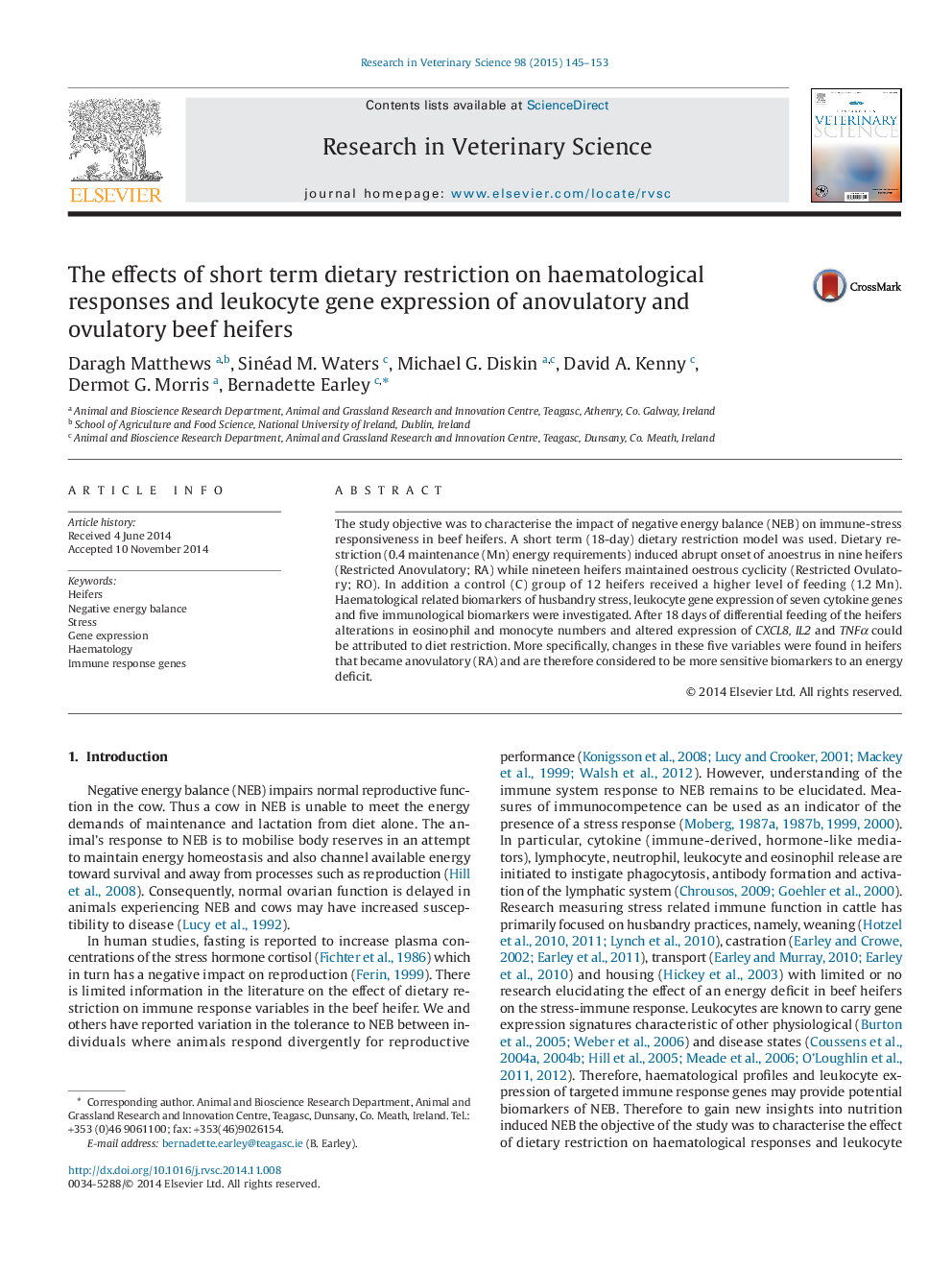| Article ID | Journal | Published Year | Pages | File Type |
|---|---|---|---|---|
| 2454749 | Research in Veterinary Science | 2015 | 9 Pages |
•The present study was designed to examine effect of nutrition induced short-term negative energy balance (NEB) on haematological responses and the expression of leukocyte immune response genes.•Following short term dietary restriction heifers were characterised as sensitive (restricted anovulatory; RA) or tolerant (restricted ovulatory; RO) to an energy deficit based on their ability to ovulate while fed a restricted diet (0.4 Mn estimated energy requirement). Control heifers (C) received a higher level of feeding (1.2 Mn).•The relative gene expression of a number of pro-inflammatory cytokines (IL1β, IL2, IFN-γ, TNFα) and chemokine (IL8) CXCL8 was measured in blood leukocytes to determine if an inflammatory stress response was evident following short term dietary restriction.•Of all variables measured only eosinophil and monocyte numbers and the expression of CXCL8, IL2 and TNFα in blood leukocytes could be attributed to diet restriction.
The study objective was to characterise the impact of negative energy balance (NEB) on immune-stress responsiveness in beef heifers. A short term (18-day) dietary restriction model was used. Dietary restriction (0.4 maintenance (Mn) energy requirements) induced abrupt onset of anoestrus in nine heifers (Restricted Anovulatory; RA) while nineteen heifers maintained oestrous cyclicity (Restricted Ovulatory; RO). In addition a control (C) group of 12 heifers received a higher level of feeding (1.2 Mn). Haematological related biomarkers of husbandry stress, leukocyte gene expression of seven cytokine genes and five immunological biomarkers were investigated. After 18 days of differential feeding of the heifers alterations in eosinophil and monocyte numbers and altered expression of CXCL8, IL2 and TNFα could be attributed to diet restriction. More specifically, changes in these five variables were found in heifers that became anovulatory (RA) and are therefore considered to be more sensitive biomarkers to an energy deficit.
